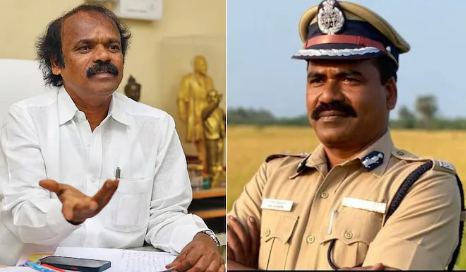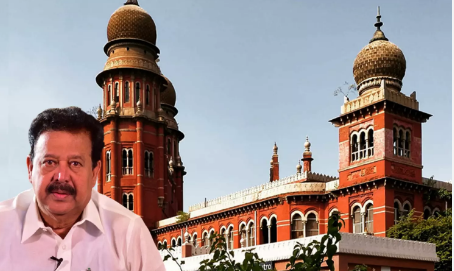
In a significant legal development, the Supreme Court of India will hear a crucial plea on June 18, 2025, that challenges the Madras High Court’s order directing the arrest of Tamil Nadu’s Additional Director General of Police (ADGP) Abhay Kumar Singh. The case involves allegations of kidnapping against senior police officials, and it has now reached the apex court due to its serious implications for law enforcement integrity, judicial accountability, and constitutional protections.
The hearing is highly anticipated, not only within judicial circles but also among political leaders, human rights activists, and the general public. The verdict could redefine how senior police officers are held accountable for their actions and whether judicial orders should be enforced immediately or reviewed for procedural fairness.
The Origin of the Controversial Case
The controversy began when S. Yuvaraj, a man facing multiple legal cases, claimed that he was kidnapped by police personnel in plain clothes from his residence. According to Yuvaraj’s statement, no warrant was shown, no legal documentation was provided, and he was forcibly taken without proper procedure. The incident sparked outrage, leading to a petition being filed in the Madras High Court.
The High Court, deeply concerned by the nature of the complaint, launched an inquiry into the matter. Upon reviewing CCTV footage, testimonies, and legal arguments, the court found that there was prima facie evidence suggesting serious procedural violations. It concluded that ADGP Abhay Kumar Singh had allegedly ordered or approved the operation, despite the absence of due legal process. In response, the court passed a directive for his immediate arrest, labeling the act as a grave misuse of power.
The Supreme Court Steps In
Faced with the arrest order, Abhay Kumar Singh approached the Supreme Court by filing a Special Leave Petition (SLP). In his plea, Singh stated that the High Court’s order was unjustified, and he was denied a fair opportunity to explain or defend his actions. He claimed that the allegations were misinterpreted, and that he acted in accordance with standard police protocols to maintain law and order.
The Supreme Court took note of the urgency and sensitivity of the issue. A bench headed by Chief Justice D.Y. Chandrachud agreed to examine the matter in detail and scheduled the hearing for June 18, 2025. The apex court’s role will now be to determine whether the High Court overstepped its jurisdiction or acted within its constitutional duty to safeguard individual rights.
Key Legal Questions Under Consideration
At the heart of this legal battle are several critical constitutional and legal questions. Can a High Court directly order the arrest of a high-ranking police official without trial or detailed inquiry? What kind of evidence threshold must be met before such an order is considered justified? Should the Supreme Court interfere with such decisions, or let the lower judiciary function without interruption?
These are not just technical questions. They concern the balance of power between the judiciary and the executive, and the rights of individuals versus the powers of law enforcement agencies. Legal scholars and human rights defenders argue that such scrutiny is essential to maintain the democratic fabric of the country.
Widening Impact on Police Accountability
The case has brought renewed focus to the issue of police accountability in India, especially concerning top-ranking officers. For decades, complaints of misuse of police power have been prevalent, but very few have led to strict judicial action against senior personnel. The arrest order against ADGP Singh, if upheld by the Supreme Court, could signal a shift toward stricter oversight and enforcement.
On the other hand, critics warn that such actions may demoralize honest officers, especially if they believe they are vulnerable to arrest without a complete trial. It is this thin line between disciplinary enforcement and legal overreach that the Supreme Court must now carefully evaluate.
Political and Public Reactions Intensify
The case has also taken a political turn, especially in Tamil Nadu. While the ruling DMK government has maintained a cautious distance from direct comments, opposition parties like the AIADMK and BJP have strongly criticized the state’s law enforcement machinery. They allege that the kidnapping incident reflects a larger failure of governance and the misuse of police power for political ends.
At the same time, civil society groups and human rights activists have welcomed the judiciary’s intervention, calling it a bold step toward ensuring justice and transparency in police operations. On social media platforms, citizens are divided—while some support the High Court’s assertiveness, others question whether the order was passed in haste without adequate deliberation.
Reactions from the Legal Community
The legal fraternity has been vocal about the broader implications of the case. According to Advocate Ramesh Balaji, a well-known constitutional lawyer based in Chennai, “When courts take strong actions against high-ranking officials, it reaffirms the power of the judiciary and restores public confidence in justice.”
However, others such as Senior Advocate Meenakshi Arora believe the matter should be handled more carefully. She argues that, “Judicial actions should not resemble punishment without trial. Even senior officers deserve fair hearings and due process.” These contrasting views reflect the complexity of the issue, making the Supreme Court’s role even more crucial.
What Could Happen After the Hearing?
The Supreme Court’s verdict on June 18 will likely determine the future course of the investigation. If the court decides to stay the arrest order, it could offer temporary relief to Abhay Kumar Singh and also introduce stricter guidelines for how High Courts issue such directions.
On the other hand, if the Supreme Court upholds the Madras High Court’s decision, it could lead to further action against more officials involved in the case and possibly prompt a larger review of police procedures across the country. The verdict will likely shape future judicial behavior in cases involving public officials and executive accountability.
Broader Implications for the Indian Justice System
Beyond the specifics of the case, this legal episode raises urgent questions about the functioning of democracy, constitutional values, and the rule of law. How do we ensure that no one is above the law, while also protecting due process and procedural rights? How should courts balance their watchdog role with the need to prevent judicial overreach?
The answer to these questions will not just affect Abhay Kumar Singh or the Tamil Nadu Police. They will set legal and administrative standards that will impact law enforcement officers, judiciary behavior, and civil liberties across the country.
As the date of the hearing approaches, all eyes are now on the Supreme Court. The case has become a symbolic battleground between accountability and authority, between speed and fairness, and between judicial activism and constitutional restraint. Whichever way the verdict goes, it will undoubtedly be remembered as a landmark case in the annals of Indian legal history.
The people of India, along with legal experts, political parties, and civil society, await the Supreme Court’s decision on June 18, which could potentially redefine how police officers are held accountable and how constitutional justice is delivered in modern India.































